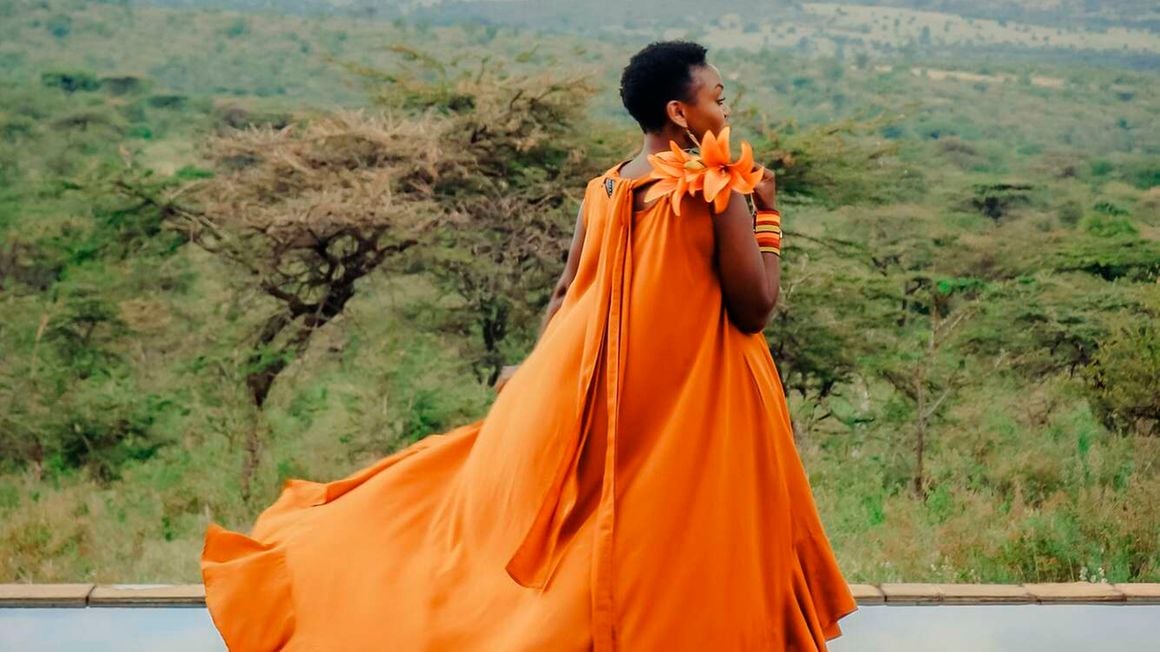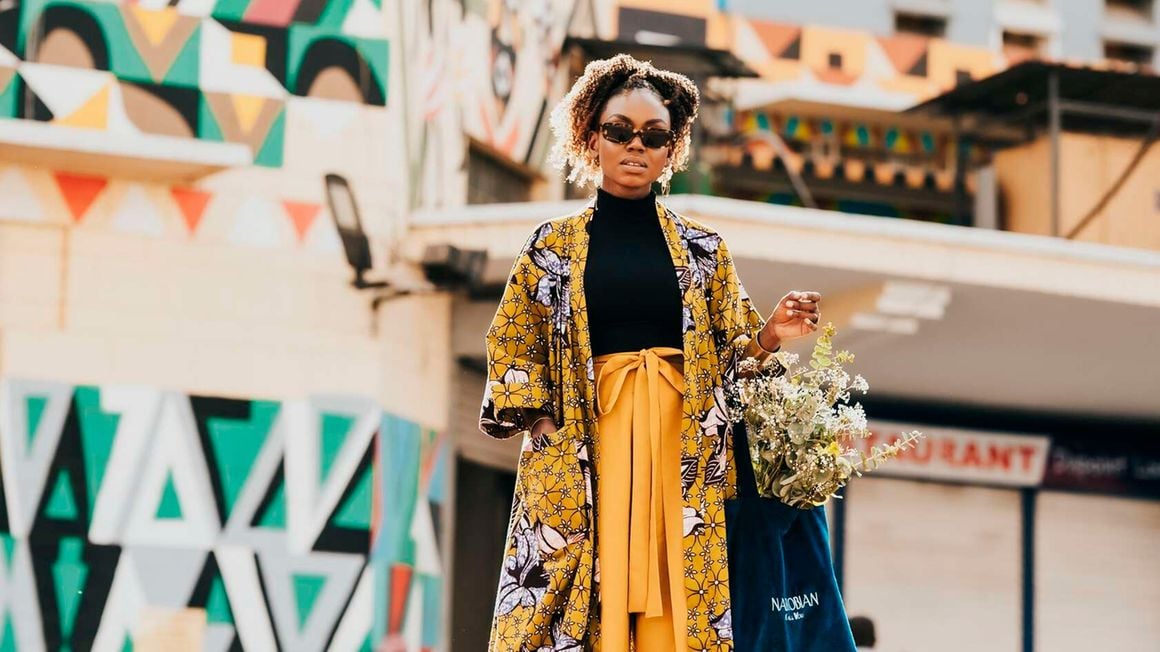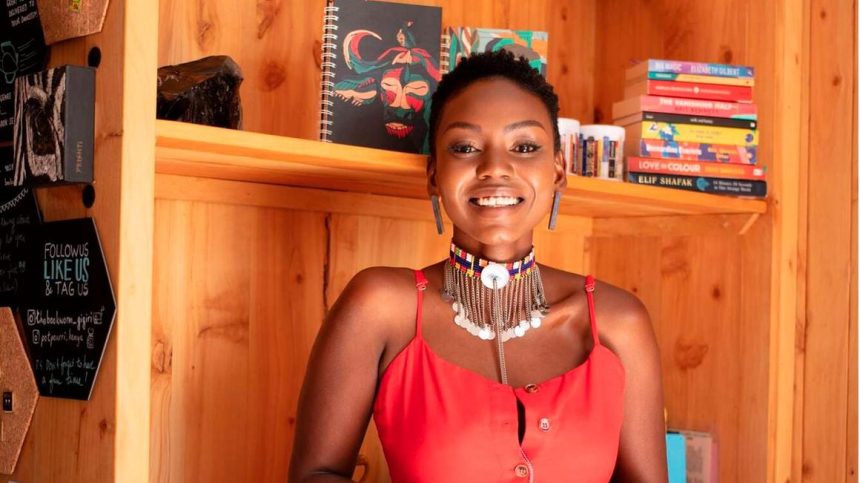Patricia Kihoro had been engaged in personal branding long before she understood the concept. She remembers, as a nine-year-old making the decision that she wanted to be a singer, influenced by celebrity musicians Mariah Carey and Whitney Houston.
The latter was also an actress, and Ms Kihoro wanted that too for herself.
The big decisions she took from that time, from participating in music competitions to taking to the theatre stage and auditioning for films, have shaped her into the talented singer, songwriter, actress, radio, and reality television personality she is today.
She talks to BDLife about dressing ‘Made in Kenya’ and what it means to someone’s personal branding.
You dress in ‘Made in Kenya’, do you think it’s possible for a Kenyan woman to wear ‘Made in Kenya’ every day of the year for various occasions such as business formal, red carpet, and casual wear?
I have been collecting ‘Made in Kenya’ pieces for the last five years. I can repeat and style the items differently to be worn every single day of the year.
I don’t have many items but I am good at re-creating and styling looks out of what I have. So yes, for me I can wear ‘Made-in-Kenya’ for 365 days of the year for various occasions.
Now if you are a person who doesn’t have many ‘Made in Kenya’ pieces it will take you some time to build your wardrobe and you will need to set aside a budget to invest in purchasing these pieces or have them custom made.
The pieces vary in price ranges and one must remember that designers and tailors have to include the production and labour costs in the collections that they produce.
Why do you like to support and wear Made in Kenya?
‘Made in Kenya’ brands are amazing! I have always purchased items from Maasai Market. Even when I was a competitor in the Tusker Project Fame in 2009, I had accessories from Maasai Market.
Whenever I travel, I intentionally wear ‘Made In Kenya’, and I always get positive feedback and queries as to where I purchased my clothes or accessories and if they are available online.

Entertainer, content creator, and storyteller Patricia Kihara. FILE PHOTO | POOL
Today, I am proudly wearing four different local clothing brands — IKOJN, ShopZetu, Siri Studio and my shoes are from Oye Africa.
I like to purchase items that I can style and wear with other items. This also translates to sustainability in fashion. I have items in my wardrobe that I purchased 10 years ago that I am still wearing.
Another aspect of sustainability is clothes swapping. My friends and I occasionally declutter and have clothes swap parties.
I am happy to pay for the ‘Made in Kenya’ brand so long as it is within my budget. Local clothing brands constantly reach out to give me clothes to market for them on my platform, but I am very discerning.
I can tell if items are imported or locally made.
How do you balance being an entertainer, content creator and storyteller?
It’s not about balance but harmony. When I am working on content creation, I focus on that for three months then I go back to my entertainment projects. The various projects are not always happening at the same time.
How has your brand evolved?
Each project I have worked on in the last 10 years or so has opened doors to another. I am constantly working on something new and exciting.
My brand has kept on adapting to its new audiences and environments. I have also been open to new opportunities and challenges, and when one door closes, I always ask myself, “What is the next challenge?”
What are you currently working on now?
Primarily content creation and also Disconnect 2, which I featured in is currently showing on Netflix.
What’s your advice to someone who wants to build a personal brand?
That is a very interesting question because I’ve never thought of myself as a brand. Everything I have done has just been organic, just living my life.
But as I mature, I have also become more discerning about what I share, careful not to get to a point where I have to heavily curate myself because I want to remain authentically Patricia.
By virtue of being an actress, a radio host, and featuring in theatre productions, I have authentically built an audience, and hence brands work with me because of the target audience.
Brands are not built overnight. It takes time and consistency. I love and admire Ghanaian American Bozana Saint John. At some point, she lived in Nairobi, working as the chief marketing officer at Netflix.
She was the chief brand officer at Uber, among many other titles she has held. She recently launched her memoir titled The Urgent Life, in which she describes her life as a marketing executive, losing her husband, and becoming a single parent.
She is also working with the Ghanaian government to market and promote the country globally.
What happens when your brand is tainted and credibility is lost? How do you rebuild your brand reputation?
That has happened to me. In a couple of those instances, I have had people say hurtful things about me, and because I am not confrontational online, I usually sit back and be like, “Well, this is not true”.
I do not stress too much because I know the truth of the situation, as does my family. There have been some instances where I had to get lawyers involved because it was getting out of hand.
You have to stay true to what you believe in. Also, what are your values? If you are happy fighting with people online, then go ahead and do so.
Whatever decision you make on how to rebuild your brand after a damaging incident, make sure it aligns with your values. In instances where you have made a mistake, own it, apologise, and move on.

Entertainer, content creator, and storyteller Patricia Kihara. FILE PHOTO | POOL
What’s your secret to growing a social media audience?
Authenticity is important. People will follow you because they want to connect with you, see your everyday activities, the highs and the lows, and how you manage to navigate this journey called life.
What’s your take on personal brands pivoting and re-inventing themselves?
Brands can always pivot, evolve, and change direction, even with your career.
So allow yourself the privilege of starting afresh, knowing that you can always learn something new. Stay excited and do what makes you happy, and take great care of your mental health.
I admire Ciiru Waweru of the brand Anjiru. From creating children’s beds, she has re-invented her brand and launched a lifestyle interior décor showroom and has even introduced fashion accessories to her label!
Have you ever had moments of self-doubt?
When Covid-19 came, and things fell apart, my mental health took a hit. I have had many moments of self-sabotage and doubting my abilities.
It was a struggle, and I had to seek professional help. What keeps me going is the support of friends and family.
Does image matter, especially with our young creatives who are interviewing for jobs in various sectors of the creative industry?
And yes, image plays a big part in your overall look during job interviews. Show up as yourself; no one wants to see a replica of someone else. But ensure you are dressed according to the interview environment.
How can someone break into the competitive Kenyan music industry?
Use all the resources available to you. Nowadays, you do not need to struggle and hound down radio presenters to play your music.
If you have good music, people will gravitate towards it. There are always people rooting for you.
As much as the social media landscape is full of critics, there are always people rooting for you. Always trust your dopeness. It’s important.
Which African creative would you like to collaborate with and why?
Top of mind, I would say Sauti Sol now that they are planning their final tour, and if you remember, the Coming Home video was to be continued, we can do a Part Two of that as we celebrate their final show this December.



